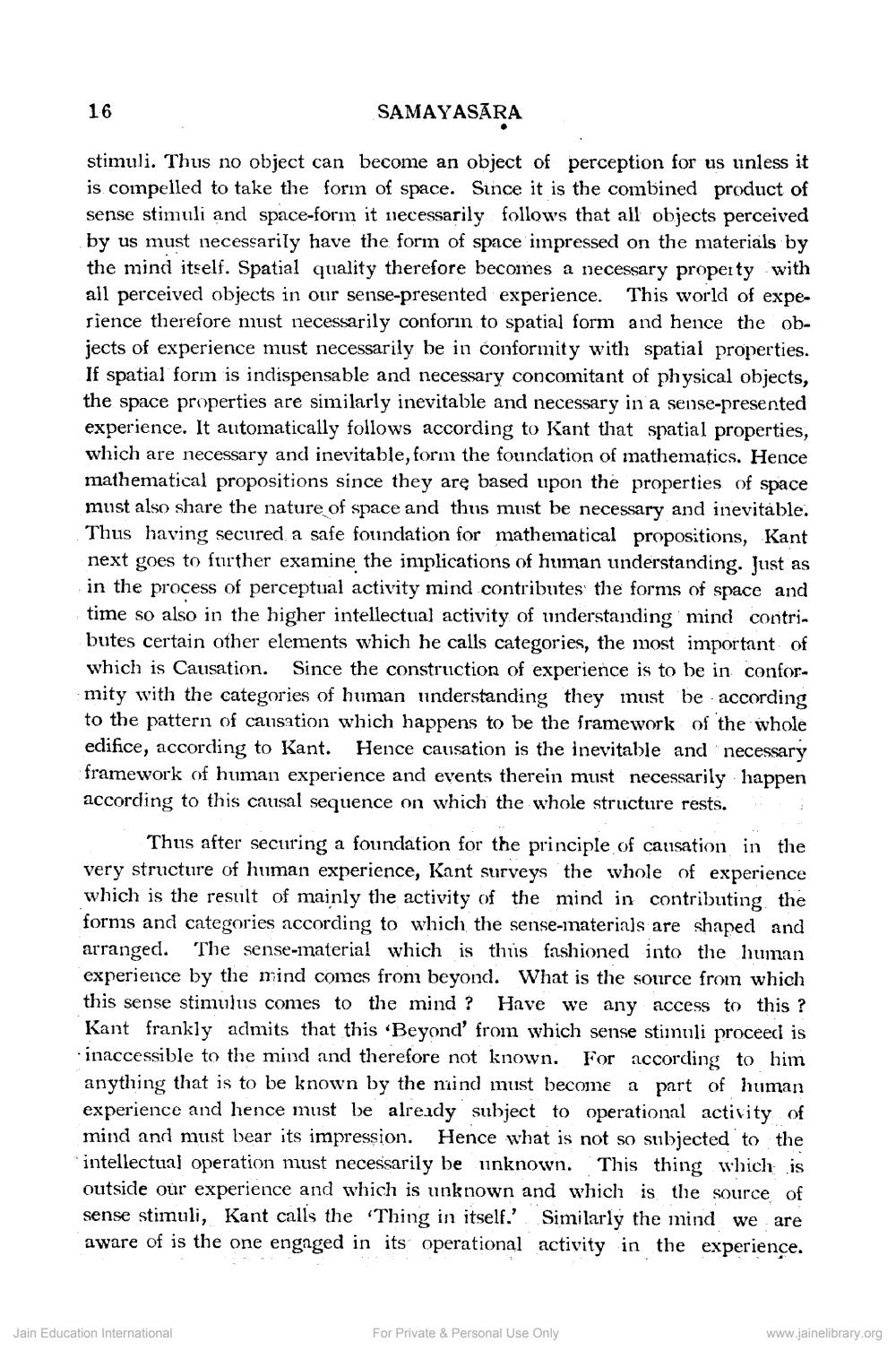________________
16
SAMAYASARA
stimuli. Thus no object can become an object of perception for us unless it is compelled to take the form of space. Since it is the combined product of sense stimuli and space-form it necessarily follows that all objects perceived by us must necessarily have the form of space impressed on the materials by the mind itself. Spatial quality therefore becomes a necessary property with all perceived objects in our sense-presented experience. This world of experience therefore must necessarily conforın to spatial form and hence the objects of experience must necessarily be in conformity with spatial properties. If spatial forın is indispensable and necessary concomitant of physical objects, the space properties are similarly inevitable and necessary in a sense-presented experience. It automatically follows according to Kant that spatial properties, which are necessary and inevitable, form the foundation of mathematics. Hence mathematical propositions since they are based upon the properties of space must also share the nature of space and thus must be necessary and inevitable. Thus having secured a safe foundation for mathematical propositions, Kant next goes to further examine the implications of human understanding. Just as in the process of perceptual activity mind contributes the forms of space and time so also in the higher intellectual activity of understanding mind contri. butes certain other elements which he calls categories, the most important of which is Causation. Since the construction of experience is to be in conformity with the categories of human understanding they must be according to the pattern of causation which happens to be the framework of the whole edifice, according to Kant. Hence causation is the inevitable and necessary framework of human experience and events therein must necessarily happen according to this causal sequence on which the whole structure rests.
Thus after securing a foundation for the principle of causation in the very structure of human experience, Kant surveys the whole of experience which is the result of mainly the activity of the mind in contributing the forms and categories according to which the sense-materials are shaped and arranged. The sense-material which is thus fashioned into the human experience by the mind comes from beyond. What is the source from which this sense stimulus comes to the mind ? Have we any access to this? Kant frankly admits that this ‘Beyond' froin which sense stimuli proceed is · inaccessible to the mind and therefore not known. For according to him anything that is to be known by the mind must become a part of human experience and hence must be already subject to operational activity of mind and must bear its impression. Hence what is not so subjected to the intellectual operation must necessarily be unknown. This thing which is outside our experience and which is unknown and which is the source of sense stimuli, Kant calls the Thing in itself.' Similarly the mind we are aware of is the one engaged in its operational activity in the experience.
Jain Education International
For Private & Personal Use Only
www.jainelibrary.org




